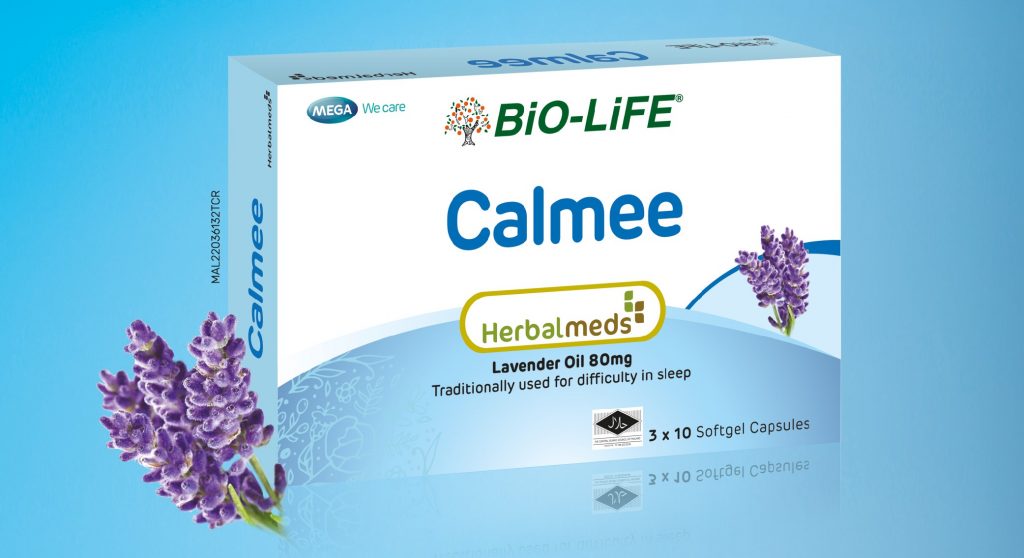
Are Those Running Thoughts Keeping You Awake At Night?
29 March, 2024
In the hustle and bustle of our daily lives, we often find ourselves caught in the web of emotions, struggling to differentiate between the stress from work, family, finances, or health and the silent undertow of anxiety.
Think of stress as a normal reaction to specific problems or pressures you encounter, such as a tight deadline at work. On the other hand, anxiety is a more general and prolonged feeling of worry and unease that might not be directly tied to a specific event. It often lingers in the background, even without an obvious reason.
Stress and Anxiety – Look for the Fine Differences
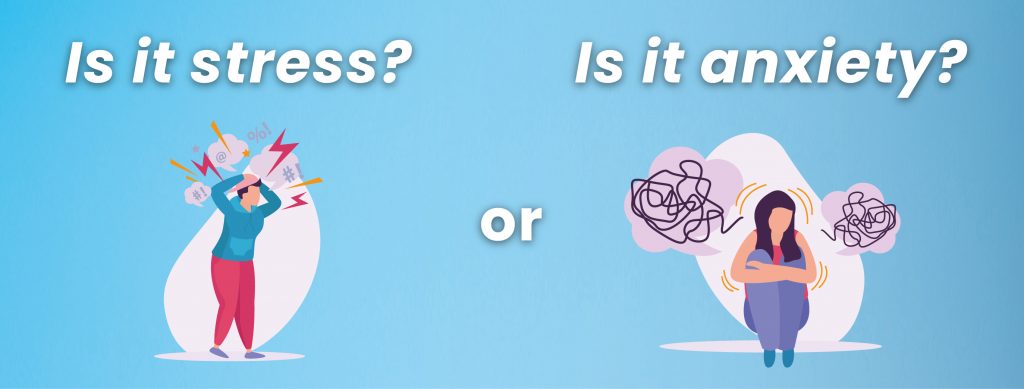
The Trigger
Stress: Positive stress (eustress) arises from situations like meeting challenging deadlines or embracing significant life changes. Negative stress (distress) can be triggered by more distressing events, such as the loss of a family member. Stress is perpetuated by the presence of a stressor.
Anxiety: This may not always be tied to a readily identifiable trigger or external factor. It often manifests as a pervasive worry, unease, or fear, extending beyond one specific stressor.
The Origin
Stress: Arises from external triggers or stressors and is characterized by the physical or mental tension experienced in response to it.
Anxiety: Arises from a sense of internal fear that evolves in reaction to a stressor. The uncertainty or doubt may also be triggered even without a stressor. Genetics, personality, and brain chemistry may also lead to anxiety in a person without any firm reason.
The Duration
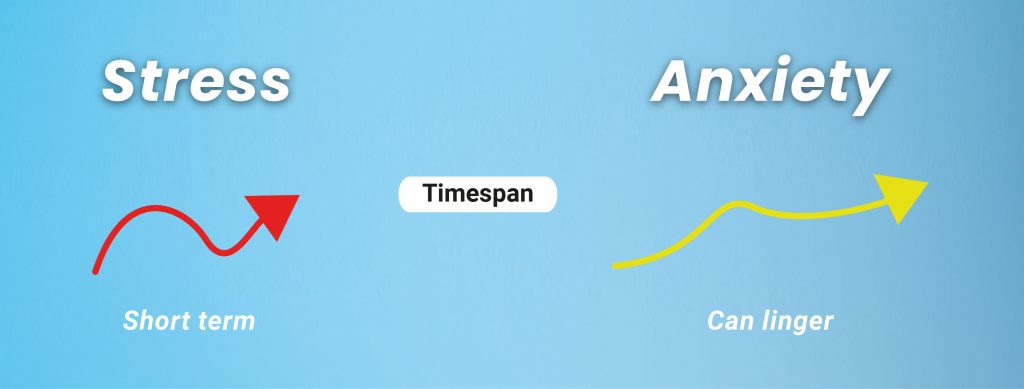
Stress: Tends to go away in the short term once the root stressor or issue is addressed.
Anxiety: May linger for an extended period, persisting even after the triggering factor has been resolved.
The Feeling
Stress: Feeling exhausted and overwhelmed, with a sense of burden, fatigue, or disinterest in engaging with tasks or responsibilities.
Anxiety: Heightens feelings of fear, which in turn may render individuals unable to muster the energy or confidence needed to initiate actions, complicating the ability to navigate daily activities
Symptoms of Stress and Anxiety
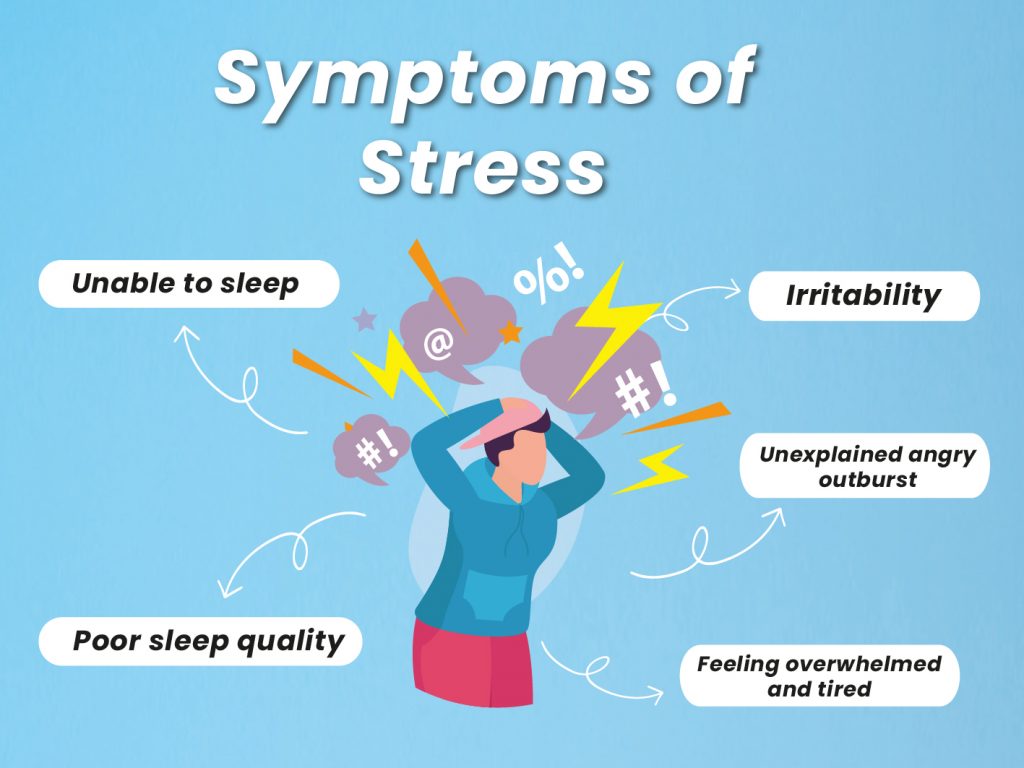
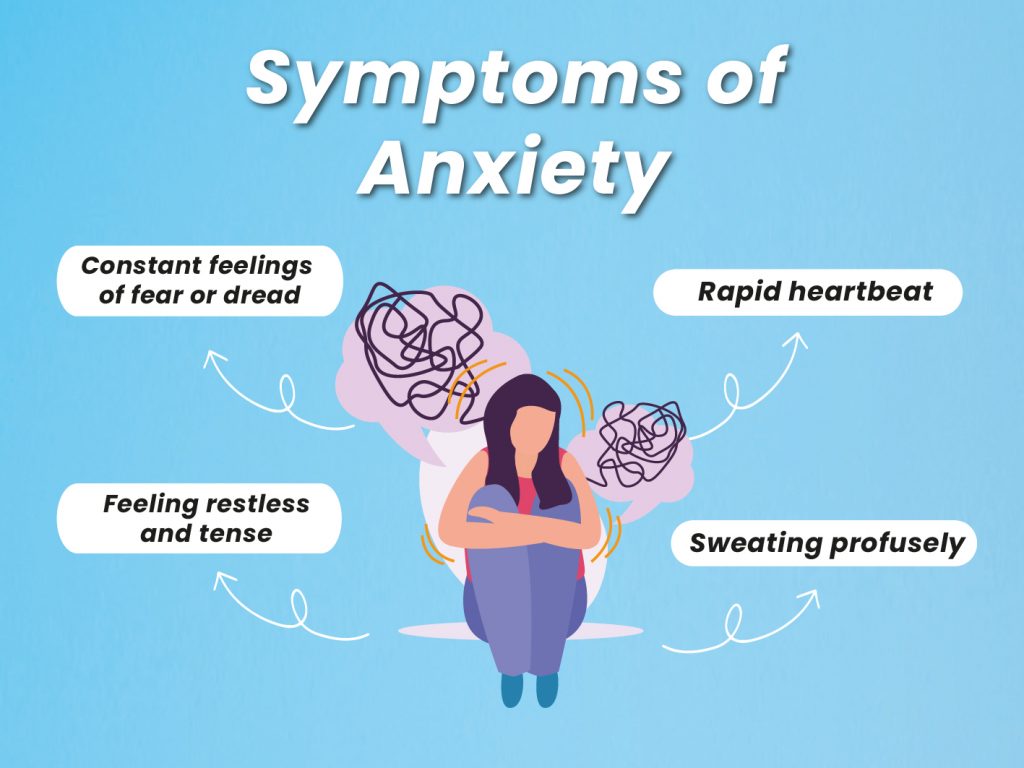
To better manage the rise of anxious feelings, it’s important to know that there are many easy ways to unwind and calm your mind and mood right in the comfort of your home. These include practicing deep breathing exercises, indulging in a soothing warm bath, reducing screen time, and embracing screen-free activities such as journaling or drawing. For a more holistic approach to achieving relaxation, consider using clinically proven, food-grade lavender oil, which effectively promotes a sense of calm and tranquillity.
About Lavandula angustifolia Mill Since ancient times, lavender’s soothing fragrance has woven a tale of tranquility. From ancient Mesopotamia to today, its calming essence has transcended centuries. In this seamless blend of history and innovation, Herbalmeds Calmee takes a modern form as a high-quality, food-grade lavender oil supplement, giving you a sense of calmness in the face of everyday stresses.
Clinically proven, high quality food-grade lavender oil
- Reduces the binding of excitatory neurotransmitters in the brain.
- Enhances the activities of GABA to provide a calming and relaxing effect.
- Clinically tested to reduce feelings of anxiousness and improve sleep quality.
- Achieves maximum benefits in 1-2 weeks with intake of 1 capsule a day.
Suitable for: Adults with light sleep and poor sleep quality due to lifestyle stressors causing the feeling of anxiousness and restlessness. 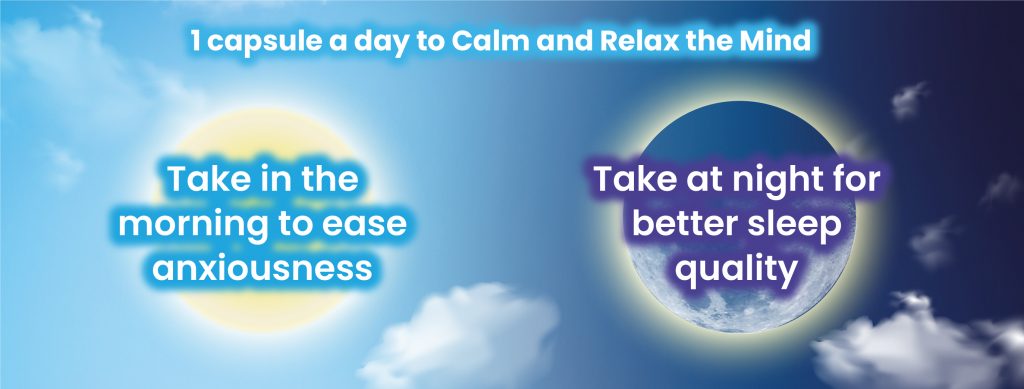 Together, let us let stress take a backseat and let the sense of calmness become our daily companion for a good day and a good night’s sleep. After all, a stress—and anxiety-free mind is the key to a happy life. Note: It is important to seek medical attention if you experience persistent stress or anxiety. Consulting a medical professional is crucial to ensure proper care and management of these conditions.
Together, let us let stress take a backseat and let the sense of calmness become our daily companion for a good day and a good night’s sleep. After all, a stress—and anxiety-free mind is the key to a happy life. Note: It is important to seek medical attention if you experience persistent stress or anxiety. Consulting a medical professional is crucial to ensure proper care and management of these conditions.

